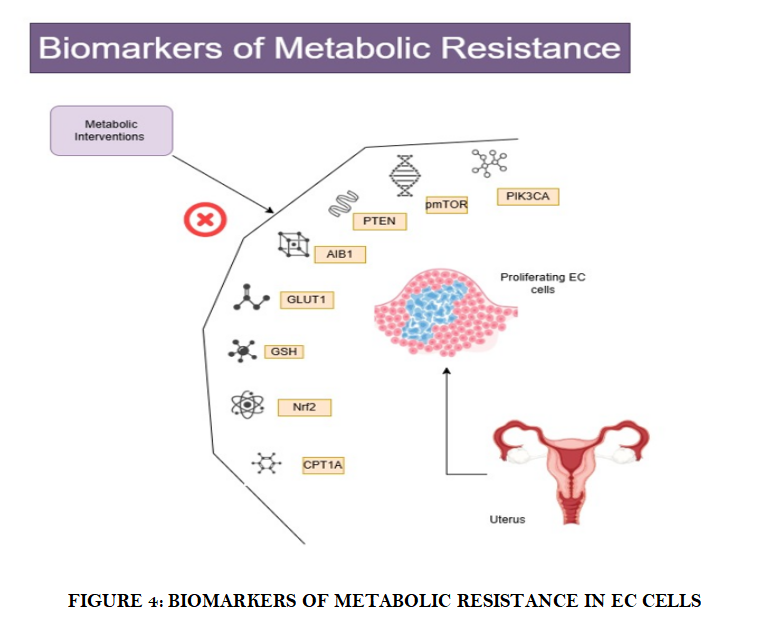Targeting Metabolic Alterations In Endometrial Cancer: Novel Therapeutic Strategies And Mechanisms Of Resistance
Abstract
The significance and contributory role of metabolic alterations in endometrial cancer cell’s pathogenesis, development, and metastasis cannot be overstated. Aerobic glycolysis, the hallmark of cancer cells is found to be complemented by other metabolic alterations such as OXPHOS, hyperglycemia, hyper insulinemia, and dyslipidemia. These metabolic alterations not only serve the role of a potent energy supply, but have some other critical functions such as Epithelial Mesenchyma transition, microenvironment regulation, and therapeutic resistance. The metabolic targeting interventions in the form of experimental and repurposed medications, hormonal drugs, enzyme inhibitors, combination therapies, lifestyle changes, and othershave been showing promising results indicating apotential to offer both augmented as well as individualized treatment options. However, EC cell’s inherent capability to adapt to metabolic interventions could pose serious challenges. Several metabolic biomarkers such as AIB1 overexpression, unregulated GLUT1, CSF1/CSF1R, and elevated levels of Nrf2 and GSH were found to be associated with therapeutic resistance and poor prognosis in EC cells. These biomarkers not only provides better diagnostic measures but could also become the novel targets in precision metabolic interventions.
Keywords: Endometrial cancer, metabolic alterations, metabolic interventions, biomarkers, chemoresistance
Downloads




